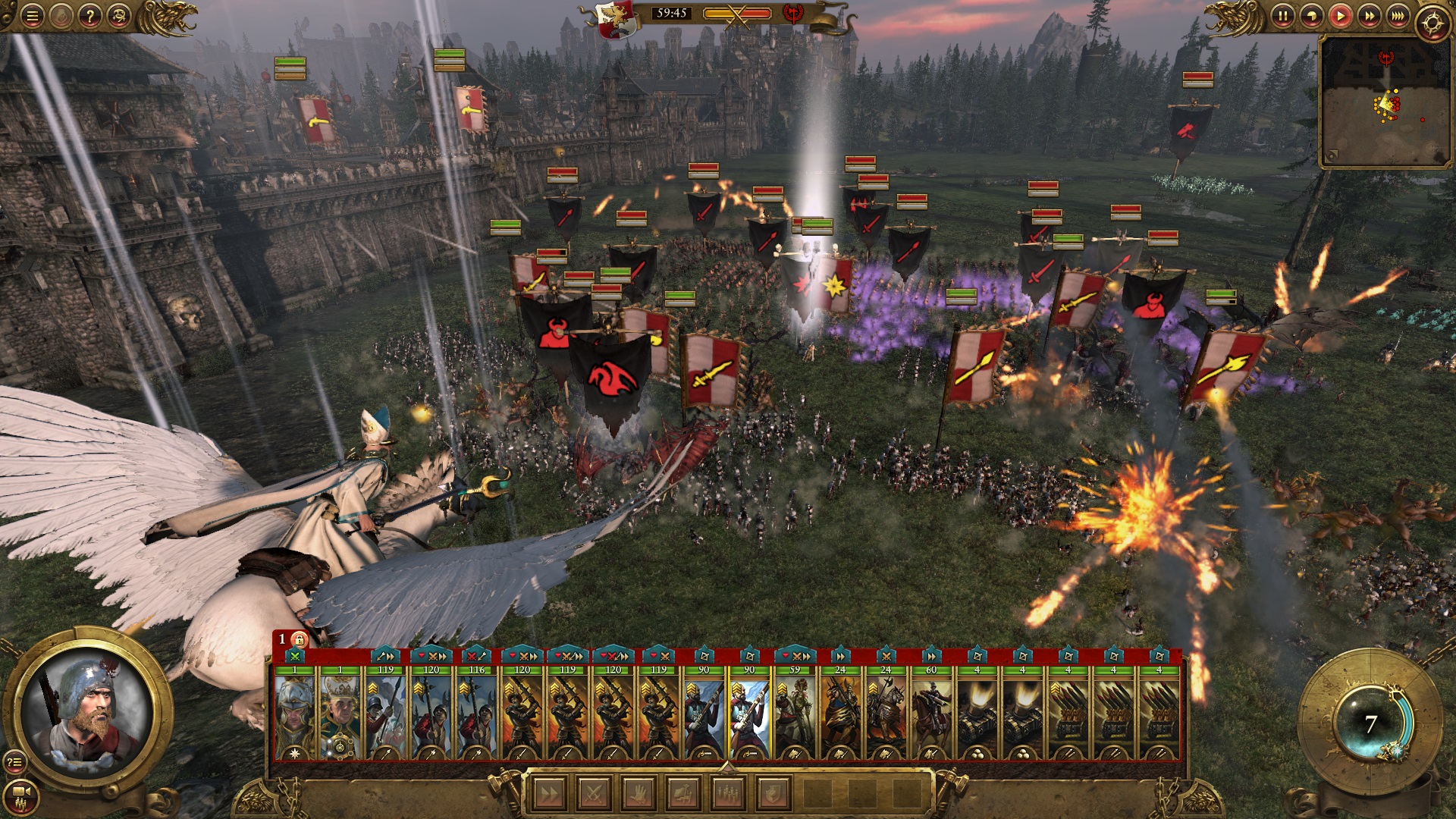Like many youths on the mean, winding streets of Bland County, Virginia, my capacity to have fun centered around creating fun for myself. Friends usually lived far beyond walking distance, and getting to see them was an event saved for weekends, summer camps, or Boy Scout meetings. Thus, keeping myself entertained meant playing games and, occasionally, inventing them. A youthful obsession with the Warhammer universe became an obvious fit for a 10 year old with an amalgamation of toys and no prior engagements. I couldn't afford the models or paints necessary to field an actual army of Eldar or Chaos Warriors, but I was able to save up enough to purchase a couple rulebooks for a less popular offshoot of the franchise: Epic 40k. Using a conglomeration of my LEGOs, toy soldiers, and Micro Machines, I cobbled together forces of good and evil to combat each other. My tenuous knowledge of the ruleset made the bedroom-spanning battles more improvisation than page flipping, but I loved each and every encounter and often convinced (forced) friends to indulge me in a round between sessions of Zombies Ate My Neighbors.
Imagine my joy when, years after that childhood of imagined, epic battles, Creative Assembly announced that they would finally be trying their hand at the world of Orks and Dwarfs.
Perhaps my biggest grievance with Total War: WARHAMMER is the length it took in arriving. Given Games Workshop's past reticence to lend their treasured license to the realm of video games, it makes sense; but even with all the corporate hand-wringing about brand protection and whatnot, you'd think that the marriage of these two franchises would have been a no-brainer. Regardless, it exists now, and it's every bit as beautiful, stressful, and complex as you could've hoped.

As much as CA's previous entry, ATTILA, managed to play it safe and quietly expand on the ideas set forth in Rome 2, WARHAMMER extricates itself from those preconceptions and twists them in ways tailored to the universe in question. Each faction has its own unique mechanics and victory conditions, ranging from the Orks' Waaagh to the Dwarfs' Book of Grudges. These complex additions tend to dictate, but not necessarily dominate, your approach during play; where the Empire may try to insulate themselves from Vampiric corruption or the impending Chaos blitzkrieg, Ork armies must constantly chase battle in order to prevent boredom and subsequent infighting. It may take a little while to come to terms with these deviations from the standard Total War formula, but once understood, they keep the game humming along in a way that feels wholly unique.
That's to say nothing of the battles themselves, of course, which are easily the deepest and most fun I've had in any Total War game thus far. For someone who cut their teeth (albeit not very well) on Total War: Shogun, that's quite the accomplishment. Each real-time conflict looks and feels like an epic, knockdown, dragout affair. They are equal parts high fantasy and gritty realism, with flying lion-mounted wizards mixing their arcane prowess with the palpable sweat and blood of the armies below. Strategies must constantly fluctuate and adapt to the opponent and their army's composition. Attempting to lock down an enemy necromancer to prevent him from resurrecting fallen combatants feels like a far cry from looping around Ork armies in an effort to squash their guerilla warfare tactics. A fantastic A/V experience depicts each affair with the proper weight and tone. At many points in my time with the game, I sincerely wished for a break from my strategic duties, if only for a chance to watch as my ranks of Grudge Throwers pelted my Ork nemeses from afar.
